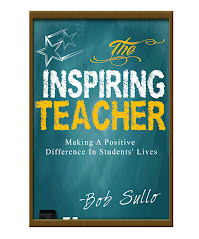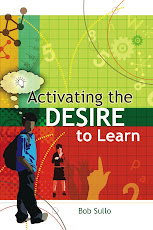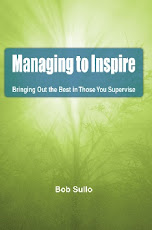A
five-year old kindergarten student in Hopkinton, Massachusetts was suspended from school this past week for bringing a toy gun to school. By all accounts,
the child did not threaten or hurt anyone. His crime was having an
inappropriate toy in school.
The
Center School in Hopkinton did what most schools do: they applied external
control psychology by imposing punishment (I’m sure it was identified as a
“consequence” in an attempt to make the suspension more palatable.)
No
doubt everyone involved had the best interest of the child in mind. I imagine
that the punishment (“consequence” if you insist on euphemism) was given to
teach the child something. That’s certainly reasonable. Our job as educators,
after all, is to teach kids.
But
what did they want Jonah Stone to learn? What was the goal? Since I wasn’t
there, I can only guess but here’s one reasonable hypothesis: teaching Jonah
that it’s not OK to bring toy guns to school. Seems like a reasonable thing to
want to teach a young child, especially given the unequivocal evidence he
didn’t already know it.
So
here’s a novel idea: instead of suspending him from school and having him sit
down with a police officer, maybe a caring adult could have spoken with the
5-year old and told him that guns – even toy guns – aren’t allowed in school.
End of incident. In other words, maybe an educator could have done their job:
teach a child who didn’t know any better. (That’s the usual process when a kid
doesn’t know how to read, spell, multiply, or successfully do any other
academic skill.)
A
simple conversation would have rendered punishment unnecessary. The goal –
learning that bringing toy guns to school is not OK – would have been achieved.
Sadly, the school chose to suspend the child, a decision that was predictably
overturned by the superintendent a few days later when he met with the parents.
I
often hear that punishment is a teaching tool. What did five-year old Jonah
Stone learn this week?
·
That
if you make a mistake, you’ll be punished.
·
That
teachers say, “Never be afraid to make a mistake” but when you make one, they
hurt you.
·
That
someone gave me a toy, but when I took it to school I had to talk to a police officer.
·
That
kids in some place called Newtown were killed by a bad man with a gun. (Note: Until this incident, Jonah
had been shielded by the unimaginable horror of Sandy Hook by his parents. The
school system made sure he got an education.)
One
can only wonder if Jonah worries that the police officer and his teachers think
he might be a bad boy and want to hurt other kids. Of course that’s unlikely,
but what’s a 5-year old to think? (“They just want me to become a responsible
adult and punished me for my own good. If they didn’t suspend me, I might grow
up to be a bad person. I have to learn there are consequences for my behavior
even though I wasn’t trying to be bad.”)
What
an inexcusable, avoidable mess. Because of the continued reliance on punishment
as a “teaching tool,” learning has certainly taken place. Jonah learned a lot
of things no child should learn.
I
suspect Jonah will be fine. Kids are resilient and manage to turn out OK
despite adult ineptitude. I hope Jonah grows into an emotionally healthy adult
who will laugh at the absurdity of this incident. Even if that’s how the story
unfolds, however, the school should be ashamed and embarrassed.
Punishment.
It certainly teaches. Too bad we’re oblivious to the learning that takes place.
***
As
always, if you enjoyed this and found it useful, please send the link to your
friends. Thanks.
Bob
Sullo
For
information about books by Bob Sullo and to schedule a keynote, workshop, or
series for your school, agency, or parent group visit www.internalmotivation.net
Don't forget to get your copy of the revised
edition of The Inspiring Teacher: Making A Positive Difference In
Students' Lives.





